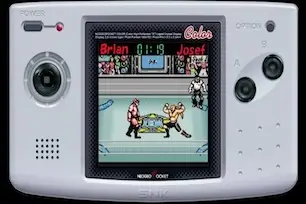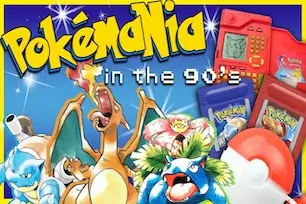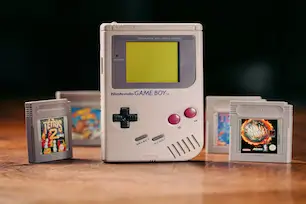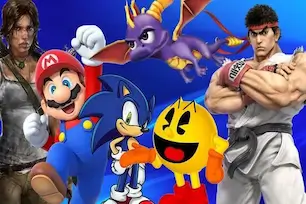I started playing Fire Emblem: The Sacred Stones for GBA yesterday, and while on the Fire Emblem Wiki I glanced over the summary of the game’s reception, which went something like this:
Key Takeaways: Retro Sequels – Video Game Sequels & Remasters
- ✅ Great sequels succeed by balancing familiarity with just enough innovation (Fire Emblem, Mario Kart, Final Fantasy).
- ✅ Stale sequels often fail because they don’t surprise or evolve (Call of Duty: Vanguard, MW3).
- ✅ Remasters extend the life of classics while reminding players why they loved the originals (God of War).
The Table of Contents
“This game isn’t different enough from the previous Fire Emblem game on the Game Boy Advance, but it’s still good overall because the first one was good.”
The Challenge of Making Video Game Sequels, Different Yet the Same
Because audiences for these retro video game sequels largely want them to be different, yet the same, right? So, you know, that’s all you have to do,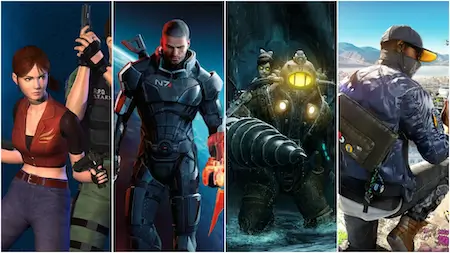 game developers, make it different but the same.
game developers, make it different but the same.
Playing through The Sacred Stones, I can see exactly what they mean, I basically needed no refresher whatsoever after having played the previous game, Fire Emblem, last December, the combat system is pretty similar.
There’s a World Map that gives you a little freedom to choose some non-linear side missions, and when units change class you now have two class options to choose between, but that’s about it for the changes as far as I can tell, including graphics, sound, weapons, etc.
But you know what? I’m totally fine with that. I liked Fire Emblem, and it’s been awhile, so I’m happy to have a similar experience with a different set of tactical map challenges.
Mario Kart Wii, Why More of the Same Still Works (and How Mario Kart 8 Perfected It)
If Nintendo had released a map pack for Mario Kart Wii, I would have bought it instantly. I wasn’t asking for new gameplay mechanics, just fresh tracks to race on. That’s one of the rare cases where I would have paid full price on day one instead of waiting for the used market. More of the same, please, I was a fan.
Interestingly, Nintendo eventually did this with Mario Kart 8 and Mario Kart 8 Deluxe. The Booster Course Pass delivered dozens of retro and new tracks, showing exactly how adding content to an already great formula keeps a game relevant for years. It’s proof that sometimes “more of the same” is exactly what players want, provided the core gameplay is strong enough.
When Lack of Innovation Makes Sequels Go Stale, Call of Duty’s Struggles
I find myself on the other side of this debate, complaining that a game experience has gotten stale because of a lack of innovation. The Call of Duty series is a great example. The original Modern Warfare felt groundbreaking, and MW2 kept things fresh with its intense campaign and Special Ops mode, even though the core gameplay didn’t radically change.
a great example. The original Modern Warfare felt groundbreaking, and MW2 kept things fresh with its intense campaign and Special Ops mode, even though the core gameplay didn’t radically change.
But later entries like MW3 and, more recently, Call of Duty: Vanguard didn’t offer the same spark. Familiar mechanics, recycled ideas, and predictable campaign beats made them feel like “more of the same” without the excitement.
That’s why many fans, myself included, gravitated toward entries like Black Ops or Modern Warfare (2019), which shook up the formula just enough to feel fresh again.
Final Fantasy, Balancing Familiarity and Innovation in RPG Sequels
An example of both the satisfaction of more of the same and the need to eventually innovate. Final Fantasy VII blew my mind when it came out in ’97, and I was more than happy to play the largely similar Final Fantasy VIII (dumb summoning mechanics aside), but by Final Fantasy IX.
I was starting to get a little bored, so I was happy when Final Fantasy X, the first in the series to come out on the PS2, changed things up in very interesting and effective ways.
Final Fantasy XII was a good mix of old and new (XI I don’t count here because it was an MMORPG, a vastly different beast than the other, single-player, numbered games), but the PS3/360-generation XIIIs have stumbled badly, in my opinion.
By taking away one of the core elements, the navigable world map, without replacing it (as Final Fantasy X did successfully) with anything else worth your time other than, I suppose, pretty graphics, which are almost never enough on their own.
Here’s a look back at the original PS2 God of War gameplay, with my commentary on how its design laid the foundation for later remasters and the 2018 reboot:
 ▶
▶
 ▶
▶
Remastered Games vs. Sequels, The Case of God of War
Not every game series moves forward only through sequels. Sometimes developers release remastered versions that polish the visuals and sound, update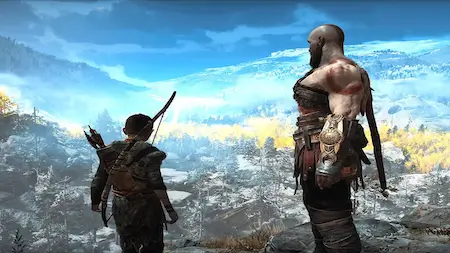 performance, or make small quality-of-life changes. A good remaster can keep a game relevant for a new generation of players without completely reworking the core formula.
performance, or make small quality-of-life changes. A good remaster can keep a game relevant for a new generation of players without completely reworking the core formula.
God of War shows how this works in practice. The original PS2 games were later collected and remastered for the PS3, giving fans sharper graphics and smoother performance while keeping the same gameplay intact. Later, a PS4 remaster extended the life of the series again.
These remasters reminded players why the franchise was so beloved, while the eventual PS4 reboot in 2018 showed how a series can also evolve when it is time to innovate.
For a deeper dive into how remastered games extend the life of classics, check out our article on whether or not remastered video games are good or bad for gaming.
So, What’s the Right Balance for Video Game Sequels?
If it were that simple, someone before me would have figured it out by now. Rather, I think it’s worth considering which games we like despite their being more of the same, which games in a series do something really new, which are a balanced hybrid of the two, and which remasters add value without feeling unnecessary.
What game series do you think have been the most innovative?
The most successful at not messing with a formula that works? The best at balancing old and new? The most inconsistent from game to game? Which remasters have been worth revisiting?
Frequently Asked Questions
What was the first video game sequel?
- Pong Doubles (1973) is considered the first official video game sequel.
What video game has the most sequels?
- The Final Fantasy series has over 15 mainline entries and many spin-offs, making it the franchise with the most sequels.
Best video game sequels ever?
- Games like Super Mario Bros. 3, Half-Life 2, and The Legend of Zelda: Ocarina of Time are often ranked among the best sequels.
Worst video game sequels ever?
- Duke Nukem Forever, Resident Evil 6, and Daikatana are frequently listed as some of the worst sequels.
What is the biggest flop in video game history?
- E.T. the Extra-Terrestrial for Atari 2600 (1982) is widely considered gaming’s biggest commercial flop.





